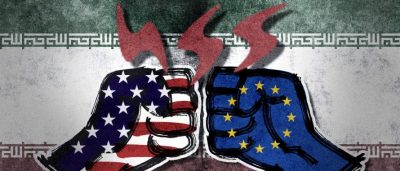ISTEX: The New EU Financial Mechanism for Trade with Iran: Bypassing the Dollar?

The Trump regime withdrew from the JCPOA nuclear deal last May. Since then, signals from EU countries have been mixed.
Invoking the European blocking statute, updating it, effective last August, to protect EU companies doing legitimate business with Iran from the impact of US extra-territorial sanctions didn’t change a thing.
It’s hard to enforce. All 28 member states must be on board. Major European companies began winding down economic and financial relations with Iran – fearing Trump regime sanctions and loss of US market access.
That’s key. It matters little what Brussels does, just what European enterprises do. It’s hard being positive in the face of US legislation calling for cutting off companies from American banks and dollar processing transactions for not observing Washington’s sanctions on targeted nations – unless there’s mass opposition to US actions.
It hasn’t happened. At least 10 countries got temporary waivers to keep buying Iranian oil and/or gas at least through May.
While the US is largely isolated on Iran, most enterprises hesitate challenging its policies. EU guarantees are meaningless if corporate Europe fails to go along.
Britain, France and Germany (the E 3) announced another mechanism for facilitating allegedly sanctions-free trade with Iran – a Special Purpose Vehicle (SPV) called an Instrument for Supporting Trade Exchanges (INSTEX).
A joint statement by their foreign ministers said the following:
“INSTEX will support legitimate European trade with Iran, focusing initially on the sectors most essential to the Iranian population – such as pharmaceutical, medical devices and agri-food goods.”
“INSTEX aims in the long term to be open to economic operators from third countries who wish to trade with Iran and the E3 continue to explore how to achieve this objective.”
Whether INSTEX can be more effective than other EU policies on trade with Iran is unclear. Commenting on it, Iranian Foreign Ministry Spokesman Bahram Ghasemi issued the following statement:
“The Islamic Republic of Iran believes the recent move by the European Union to register and announce its special financial mechanism (for trade) with Iran is Europe’s first step in fulfilling its obligations towards Iran as per a May 2018 statement by the foreign ministers of Iran and the three European countries.”
He urged the EU to fully implement all its obligations in the shortest possible time. Trump withdrew from the JCPOA almost nine months ago, the EU doing little to challenge the move, Ghasemi adding:
“Following the US withdrawal from JCPOA, despite political positions held by the EU about protecting the deal and the need for Iran to gain economic benefits and limited moves by the EU such as updating its blocking statute, unfortunately we have not seen tangible results and practical moves to Iran’s benefit.”
“The EU’s move to create the special financial mechanism was carried out too late, and the E3 and the EU must ensure that the move will compensate part of the illegal US sanctions.”
“The Islamic Republic of Iran is ready for continuing constructive engagement with the European Union and its member states based on respect and mutual interests.”
“Meanwhile, considering the limited, incomplete and long overdue fulfillment of EU obligations outlined in the May 2018 statement, Iran believes the bloc must accelerate the move and the fulfillment of its other obligations to let the Iranian nation reap the economic benefits of JCPOA.”
INSTEX is supposed to act as a bartering arrangement between EU member states and Iran, bypassing dollar transactions. It’s unclear when the new mechanism will be implemented, details still a work in progress.
Over time, it aims to give non-EU countries access to the mechanism. The Trump regime reacted harshly, the State Department saying:
“We do not expect the SPV will in any way impact our maximum economic pressure campaign. We are closely following reports about the SPV to gain additional details about the mechanism.”
“(E)ntities that continue to engage in sanctionable activity involving Iran risk severe consequences that could include losing access to the US financial system and the ability to do business with the United States or US companies.”
European companies and others doing significant business in the US will hesitate losing market access to maintain normal relations with Iran.
That is what’s key. What’s needed is the world community breaking with Washington’s imperial agenda, resisting it – challenging its economic, financial, sanctions and hot wars, no longer partnering in them, isolating the US as long as its destructive agenda continues.
*
Note to readers: please click the share buttons above. Forward this article to your email lists. Crosspost on your blog site, internet forums. etc.
Award-winning author Stephen Lendman lives in Chicago. He can be reached at [email protected]. He is a Research Associate of the Centre for Research on Globalization (CRG)
His new book as editor and contributor is titled “Flashpoint in Ukraine: US Drive for Hegemony Risks WW III.”
http://www.claritypress.com/LendmanIII.html
Visit his blog site at sjlendman.blogspot.com.

